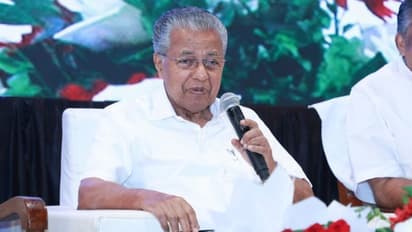Kerala: CM Pinarayi Vijayan calls high-level meeting as electricity consumption rises in the state

Synopsis
A high-level meeting chaired by Pinarayi Vijayan will be held on Wednesday to review the situation of electricity consumption in the state. In March, Kerala witnessed record-breaking electricity consumption, with a staggering 10.02 crore units consumed in a single day. This surge in demand, exacerbated by the summer heat, has put significant strain on KSEB (Kerala State Electricity Board).
Thiruvananthapuram: Chief Minister Pinarayi Vijayan has convened a meeting to address the escalating electricity consumption crisis in Kerala. The meeting was called by CM Pinarayi Vijayan amid warnings that the situation in the state will become critical as electricity usage has crossed 100 million units in consecutive days.
The Power minister, K Krishnan Kutty, had also written to the Chief Minister pointing out that the power situation in the state is worsening. The meeting will be held at 3 pm today.
The electricity consumption in Kerala hits record high as extreme heat persists. The state surpassed Monday's record, reaching 101.38 million units, with peak demand exceeding 5,000 megawatts for the past week on Tuesday. Despite central allocation and hydropower projects producing 4,400 megawatts, Kerala's electricity board is procuring additional power from the Central Power Exchange, costing between Rs. 8 to Rs. 12 per unit. The KSEB anticipates further increases in usage in the coming days.
The rise in temperature across the state has led to a surge in electricity consumption, putting the Kerala State Electricity Board (KSEB) in a precarious financial situation. Despite reinstating long-term contracts that previously provided cheap electricity, companies are not cooperating with KSEB. As a result, the only solution to the problem of purchasing power from outside sources, at a considerable cost, would likely lead to an increase in surcharges.
During the summer heat, Kerala requires over five thousand megawatts of electricity daily at peak times. Kerala's central allocation stands at 1600 MW, with 1200 MW sourced through power contracts and 1600 MW from hydro projects, totaling 4400 MW. Beyond this allocation, the board procures electricity at a significant cost to meet the demand.
Stay updated with the Breaking News Today and Latest News from across India and around the world. Get real-time updates, in-depth analysis, and comprehensive coverage of India News, World News, Indian Defence News, Kerala News, and Karnataka News. From politics to current affairs, follow every major story as it unfolds. Download the Asianet News Official App to stay informed anytime, anywhere.